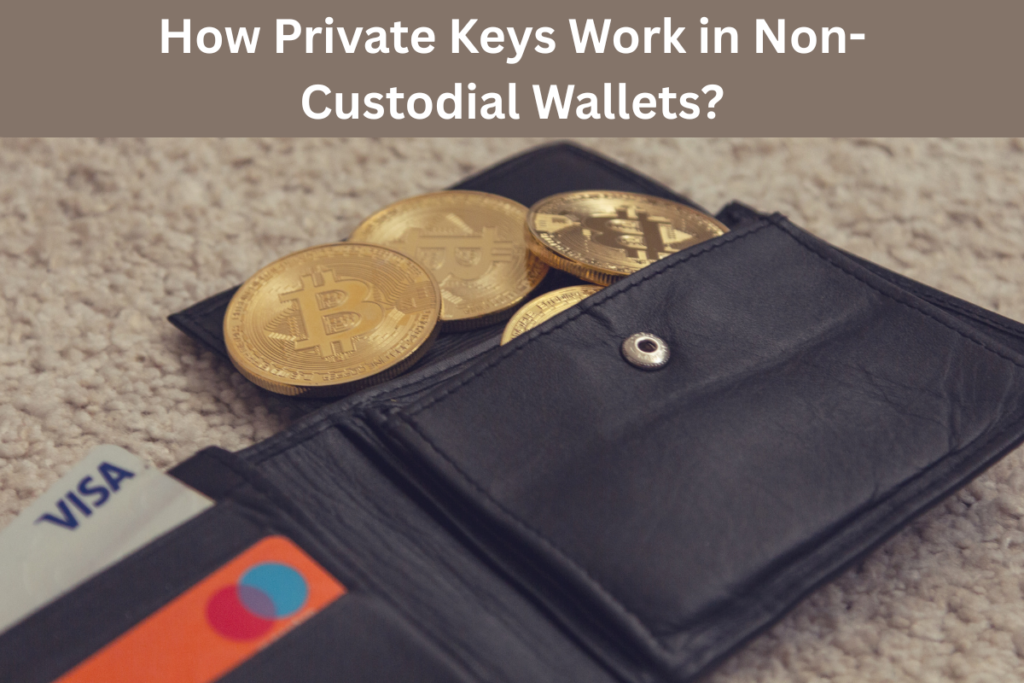Non-custodial wallet, ever-evolving in the shiny world of cryptocurrencies, has emerged as the essential instrument for the investors and the enthusiast who wants to be able to have full control over his digital assets. Understanding what goes on with private keys in such wallets would be very important for anyone who really wants to secure his crypto.
What Is a Private Key in Crypto?
At its core, a private key is a cryptographic string that gives users access to their cryptocurrency. It is the single most important component of a crypto wallet, especially a non custodial wallet, where the user, not a third party, controls this key.
A private key allows you to sign transactions on blockchain networks such as Ethereum, Bitcoin, and Solana, thereby confirming the ownership of tokens or assets that go with it. Without your private key, your cryptocurrencies are inaccessible-though you technically can look at them through a wallet interface.
Custodial vs. Non-Custodial Wallets
A custodial wallet is the one in which a centralized provider, such as an exchange, holds the private keys of the owners. Considering the simplicity of use, please note that this is not actually the safest way to store cryptocurrencies as there can be cases where a criminal act of some sort brings harm to the provider or it might go somewhere offline.
In a non-custodial wallet, the reverse happens-human keeps the private key. MetaMask, Ledger, and Coinbase Wallet are some of the popular non-custodial cryptocurrency wallets that provide different types of user interface, ranging from browser-extension type to iOS and Android apps.
The Role of Private Keys in Non-Custodial Wallets
When you use a non custodial wallet, your private key is generated locally on your device. It never leaves your phone, computer, or cold wallet hardware unless you explicitly export it—a practice security experts strongly advise against.
It is also paired with a seed phrase consisting typically of 12 or 24 words, and the seed phrase can be used to regenerate your private key, so it is important to store it offline, preferably not on a smartphone, apps, or online.
These wallets work perfectly well with dApps, NFT, and DeFi platforms, thereby providing complete access to the ever-growing world of blockchain technology.
How Private Keys Are Secured?
Most non-custodial wallets use encryption to securely store your private key on your device. Tools like hardware wallets (e.g., Ledger) enhance this security by keeping your key entirely offline, known as cold wallets or cold storage.
Coinbase Wallet or MetaMask users can also connect to decentralized exchanges, manage tokens, and explore dApps, knowing their assets are protected by the private key stored on their terms.
Common Threats to Private Keys
While you control your private keys, that control comes with risk. Phishing scams, malware, and fake crypto apps can trick users into revealing their seed phrase or installing malicious software.
Other dangers include device theft, a lack of backups, or losing access to your seed phrase altogether. Unlike centralized platforms, a lost private key in a non-custodial wallet cannot be recovered by a third party.
Best Practices for Managing Private Keys
- Use hardware wallets for significant amounts of crypto.
- Back up your seed phrase offline—never in your email or cloud.
- Avoid storing keys on your smartphone or internet-connected devices.
- Enable security features like PINs, biometrics, and two-factor authentication where supported.
Final Thoughts
Understanding how private keys work in a noncustodial wallet is fundamental to mastering cryptocurrency wallets. Whether transacting with Bitcoin, collecting NFTs, or engaging in DeFi strategies, owning your private keys ensures actual ownership of your digital assets.
By choosing a noncustodial wallet, you’re choosing security, sovereignty, and full control in the ever-expanding blockchain universe.








Leave a Reply